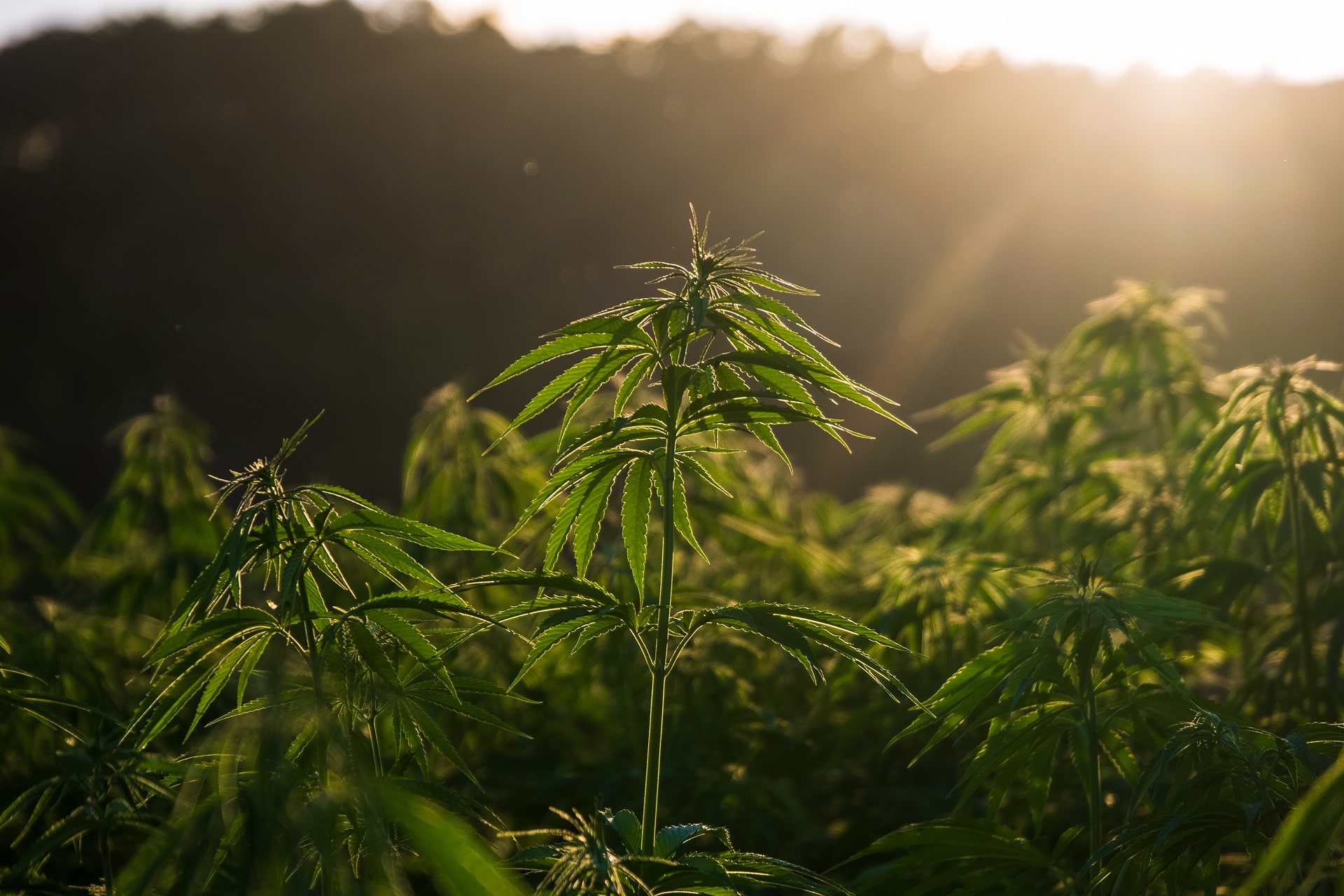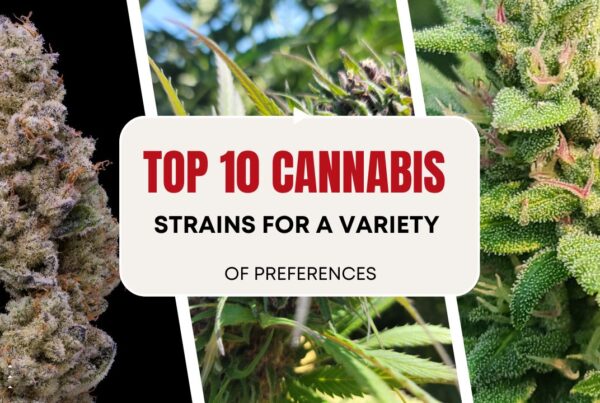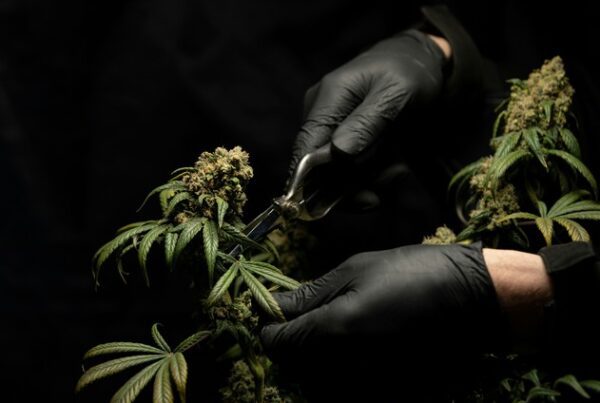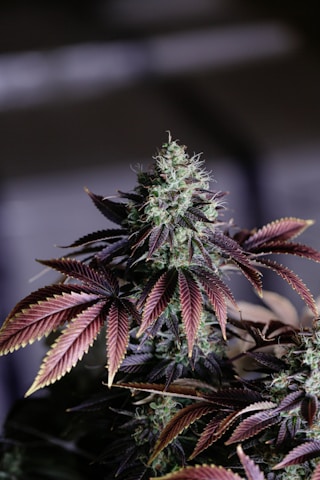
When it comes to cultivating a successful cannabis garden, the quality of the seeds you choose can make all the difference. In this guide, we will explore the top five reasons why high-quality seeds are essential for achieving a thriving cannabis garden. From ensuring genetic purity and potency to maximizing yields and overall plant health, the importance of starting with premium seeds cannot be overstated. Join us as we delve into the world of cannabis cultivation and discover how selecting the right seeds sets the foundation for a bountiful and successful harvest.
Genetic Purity and Stability
The Foundation of Quality Cannabis: Genetic Purity and Stability.
In the intricate world of cannabis cultivation, the cornerstone of success lies in the quality of seeds chosen for the endeavor. High-quality seeds are not merely a starting point but a fundamental pillar that upholds genetic purity and stability throughout the entire growth cycle. These seeds are meticulously curated and developed to showcase specific traits, ensuring a consistent and dependable outcome that sets the stage for a flourishing harvest.
Nurturing Genetic Integrity: Ensuring Consistency in Cannabis Cultivation
At the heart of cannabis cultivation lies the concept of genetic consistency, a principle that underpins the uniform expression of traits across an entire crop. This uniformity is not just a matter of aesthetics but a critical factor that empowers growers to anticipate and control various plant characteristics, ranging from growth patterns to cannabinoid content and terpene profiles. By selecting seeds that promise genetic stability, cultivators can unlock the potential for a more foreseeable and desirable final product, elevating the standard of their yields.
Beyond the Basics: Unveiling the Impact of Genetic Purity and Stability
Delving deeper into the realm of genetic purity and stability reveals a tapestry of benefits that extend far beyond the surface. By embracing high-quality seeds and genetic consistency, cultivators pave the way for enhanced disease resistance, improved stress tolerance, and heightened resilience in the face of environmental fluctuations. Moreover, the cultivation of genetically pure and stable cannabis not only streamlines production processes but also cultivates a reputation for reliability and excellence within the industry.
In essence, genetic purity and stability stand as the bedrock of successful cannabis cultivation, offering a pathway to unlocking the full potential of each plant. By recognizing the significance of high-quality seeds and genetic uniformity, growers can navigate the complexities of cultivation with confidence, yielding premium cannabis products that embody the essence of quality and precision.
Exploring Genetic Diversity: Adapting to Changing Environments
While genetic purity and stability are crucial, the importance of genetic diversity should not be overlooked. Introducing genetic diversity into cannabis cultivation can enhance adaptability to changing environmental conditions, providing a buffer against pests, diseases, and other stressors. By incorporating a diverse range of genetic traits, growers can future-proof their crops and ensure resilience in the face of unforeseen challenges, ultimately promoting sustainability and longevity in their cultivation practices.
The Role of Selective Breeding: Shaping the Future of Cannabis Genetics
Selective breeding plays a pivotal role in maintaining genetic purity and stability while also driving innovation in cannabis cultivation. Through selective breeding practices, breeders can fine-tune desired traits, such as flavor profiles, cannabinoid concentrations, and growth characteristics, to meet evolving consumer preferences and market demands. This process not only preserves the integrity of genetic lines but also opens doors to new possibilities, pushing the boundaries of what cannabis can offer in terms of both quality and diversity.
Elevating Quality Standards: Setting the Bar for Excellence
Genetic purity and stability serve as the cornerstone of elevating quality standards in the cannabis industry. By prioritizing these foundational elements, cultivators not only ensure consistent and reliable harvests but also establish a reputation for producing top-tier products that meet the expectations of discerning consumers. This commitment to genetic integrity not only benefits individual growers but also contributes to the overall advancement and legitimacy of the cannabis sector, positioning it as a sophisticated and reputable industry driven by innovation and excellence.
Genetic purity and stability are not just buzzwords in cannabis cultivation; they form the essence of success and sustainability in an ever-evolving landscape. By embracing these principles, cultivators can cultivate crops that not only meet but exceed expectations, paving the way for a future where quality, reliability, and innovation define the standard of excellence in cannabis production.
Yield and Quality of Plants
In the realm of agriculture, the significance of high-quality seeds cannot be overstated. These tiny, unassuming kernels hold the key to unlocking the full potential of a harvest, influencing both the quantity and quality of the plants they produce.
The Importance of High-Quality Seeds in Maximizing Yields
At the core of successful farming lies the use of high-quality seeds. These seeds serve as the building blocks for a bountiful harvest, laying the groundwork for robust plants that are better equipped to withstand environmental stressors and produce optimal yields.
Understanding the Link Between Seed Quality and Plant Excellence
The quality of seeds directly impacts the yield of a crop. Superior seeds possess traits that promote healthy growth, such as disease resistance, high germination rates, and genetic purity. By planting high-quality seeds, farmers can expect increased productivity and a higher yield at harvest time.
Nurturing Superior Plants Through Premium Seeds
Premium seeds not only boost yield but also contribute to overall plant quality. Plants grown from high-quality seeds exhibit traits such as uniformity, vigor, and improved nutritional content. These superior plants are more resilient, visually appealing, and nutritionally dense, making them highly desirable in the market.
Unveiling the Relationship Between Seed Quality and the End Product
The journey from seed to final product is intricately linked to seed quality. The genetic potential of a seed determines the characteristics of the plant it produces, influencing factors such as size, flavor, texture, and nutritional value. By selecting top-notch seeds, farmers can shape the attributes of their end product to meet consumer preferences and market demands.
Exploring the Impact of Seed Quality on Crop Yield and Plant Health
Seed quality plays a pivotal role in determining crop yield and plant health. By choosing seeds with superior genetics and purity, farmers can safeguard their crops against diseases, pests, and environmental challenges, ensuring a successful harvest. Additionally, high-quality seeds contribute to the long-term sustainability of agricultural practices, preserving soil health and biodiversity.
Enhancing Agricultural Productivity with Top-Notch Seeds
In the quest for increased agricultural productivity, the choice of seeds is paramount. Investing in top-notch seeds is an investment in the future, as it paves the way for sustainable farming practices, higher yields, and superior plant quality. By prioritizing seed quality, farmers can secure a competitive edge in the market and contribute to the advancement of the agricultural industry.
Investing in Quality Seeds for Optimal Yield and Plant Quality
The relationship between seed quality and the yield and quality of plants is undeniable. High-quality seeds are the cornerstone of successful farming, offering a multitude of benefits that extend from the field to the table. By recognizing the importance of seed quality and making informed choices in seed selection, farmers can unlock the full potential of their crops, achieve optimal yields, and deliver top-quality produce to consumers.
Resistance to Diseases and Pests
The Significance of Quality Seeds in Disease and Pest Resistance
- Understanding the Role of Quality Seeds: Quality seeds serve as the cornerstone for ensuring robust resistance to diseases and pests in cannabis cultivation. These seeds are endowed with genetic traits that render them less vulnerable to common pathogens and pests, thereby laying a strong foundation for a healthy crop.
- Disease Resistance: Unveiling the Genetic Influence.
- Disease resistance in cannabis plants is intricately linked to their genetic composition. High-quality seeds harbor superior genetics that empower the plants to combat diseases effectively, thereby diminishing the reliance on chemical treatments for protection.
- Pest Resistance: Harnessing Natural Defenses.
- In a parallel manner, premium seeds provide inherent defenses against pests. Through the production of natural compounds, these plants can repel or deter common pests, thereby mitigating the likelihood of pest infestations.
- The Vital Role of Disease and Pest Resistance.
- Disease and pest resistance stand as pivotal factors in ensuring the sustainability and prosperity of cannabis cultivation endeavors. By commencing cultivation with top-notch seeds, cultivators can mitigate the threats posed by diseases and pests, resulting in stronger plants and enhanced yields.
- Enhancing Disease and Pest Resistance: Best Practices.
- Apart from selecting quality seeds, implementing integrated pest management strategies and maintaining optimal growing conditions are essential for bolstering disease and pest resistance in cannabis crops. Regular monitoring, proper sanitation practices, and timely interventions can further fortify the plants’ natural defenses.
- Importance of Soil Health in Disease and Pest Resistance.
- Soil health plays a crucial role in the overall resistance of cannabis plants to diseases and pests. A well-balanced soil ecosystem promotes beneficial microorganisms that can help plants resist pathogens naturally. Ensuring proper soil pH, adequate drainage, and organic matter content can contribute significantly to disease and pest prevention.
- Genetic Diversity and Resilience.
- Genetic diversity among cannabis cultivars is key to building resilience against evolving diseases and pests. By cultivating a variety of strains with different genetic backgrounds, cultivators can reduce the risk of widespread crop damage due to a single pathogen or pest species.
- Sustainable Pest Management Approaches.
- Embracing sustainable pest management practices, such as introducing beneficial insects, using organic pesticides, and employing crop rotation techniques, can enhance the overall disease and pest resistance of cannabis crops while minimizing environmental impact.
- Conclusion.
- Embracing quality seeds is the primary stride towards fortifying the defense mechanisms against diseases and pests in cannabis cultivation. By prioritizing disease and pest resistance through comprehensive strategies, cultivators can cultivate a more resilient and productive crop, ensuring long-term success and sustainability.
Cost-Effectiveness in the Long Run
Investing in high-quality seeds may seem like a significant upfront cost, but in the long run, it can lead to substantial savings and financial benefits. By choosing quality seeds, farmers can improve crop yields, reduce the need for additional inputs like fertilizers and pesticides, and ultimately increase their profits. In this blog section, we will explore how the initial investment in high-quality seeds can translate into cost-effectiveness over time.
High-quality seeds are the foundation of a successful harvest. While the initial cost may be higher compared to lower-quality alternatives, the long-term benefits far outweigh the upfront expenses. Quality seeds are bred to resist diseases, pests, and environmental stressors, ensuring a higher chance of a bountiful yield. This resilience translates to reduced crop loss, which directly impacts a farmer’s bottom line.
Moreover, quality seeds are often genetically modified to enhance desirable traits such as drought tolerance, higher nutrient content, or faster growth. These characteristics not only contribute to better yields but also decrease the reliance on costly agricultural inputs. With quality seeds, farmers can minimize the need for excessive fertilizers, pesticides, and water, leading to cost savings and environmental sustainability.
In addition to improved yield and reduced input costs, high-quality seeds offer long-term benefits through seed saving. Farmers can collect seeds from successful harvests, store them properly, and replant them in subsequent seasons. This practice not only cuts down on seed purchasing expenses but also allows for the preservation of locally adapted varieties, promoting biodiversity and resilience in the agricultural ecosystem.
When considering the financial aspect, it is essential to view the investment in quality seeds as a strategic decision rather than a mere cost. While the initial outlay may require careful budgeting, the returns in terms of higher productivity, lower input costs, and sustainable farming practices make it a prudent choice for long-term success. By prioritizing quality seeds, farmers can secure their future yields, mitigate risks, and ultimately achieve greater profitability in the ever-evolving agricultural landscape.
Furthermore, the use of high-quality seeds can also have positive effects on soil health. Quality seeds lead to healthier plants, which in turn contribute to improved soil structure and fertility. This can result in reduced soil erosion, better water retention, and overall enhanced soil quality over time. Healthy soils are crucial for sustainable agriculture and long-term productivity, making the initial investment in quality seeds even more valuable.
Another important aspect to consider is the impact of quality seeds on market competitiveness. By producing higher quality crops with the help of superior seeds, farmers can command better prices in the market. Consumers are often willing to pay more for produce that is known to be of superior quality, which can further boost the financial returns for farmers investing in quality seeds.
While the cost of high-quality seeds may seem daunting at first, the long-term benefits they offer in terms of increased yields, reduced input costs, environmental sustainability, soil health, and market competitiveness make them a wise investment for farmers looking to secure their future in agriculture.
Conclusion
Investing in high-quality seeds is crucial for anyone looking to cultivate a successful cannabis garden. By choosing superior seeds, growers can ensure better yields, higher potency, improved resistance to pests and diseases, and overall healthier plants. The quality of seeds sets the foundation for the entire growing process, ultimately leading to a more rewarding and successful harvest.










